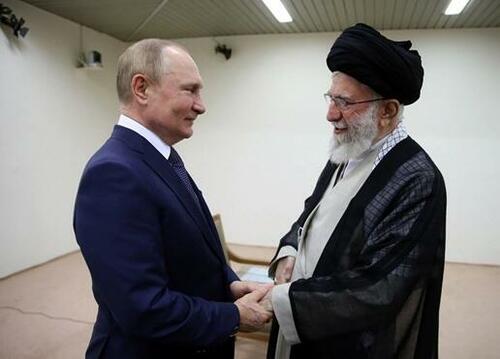Russian President Vladimir Putin has reportedly expressed support for a nuclear deal that would prevent Iran from enriching uranium, according to US officials speaking to Axios. This development marks a potential shift in Russia’s longstanding position, which has favored Iran’s right to enrich uranium. Meanwhile, Iran’s state-affiliated news agency, Tasnim, has denied receiving any such message from Moscow, citing an unnamed source.
The proposed “zero enrichment” plan aligns with the demands of Donald Trump, who has stated that the cessation of uranium enrichment is a critical condition for any agreement with Iran. This stance follows the recent escalation in tensions during a 12-day conflict between Iran and Israel, which culminated in US military strikes on three key Iranian nuclear facilities.
Shifting Dynamics in Middle Eastern Diplomacy
Reports indicate that Moscow may be pivoting towards the US position as a diplomatic strategy. European officials and a senior Israeli official have claimed that Russia has encouraged Tehran to accept the zero-enrichment condition to foster dialogue with the US. “We know that this is what Putin told the Iranians,” said one Israeli official.
Despite these reports, Iranian officials have rejected the idea of limiting enrichment to zero, viewing it as a fundamental issue of national sovereignty. Instead, Tehran has expressed a willingness to consider limits on enrichment levels along with a robust monitoring framework. However, recent actions, including the expulsion of UN IAEA inspectors, complicate this scenario.
The fundamental framework of any potential deal involves Iran relinquishing its ambitions for highly enriched uranium in exchange for sanctions relief. A European official noted, “Putin supports the no-enrichment option. He encouraged the Iranians to move in this direction to facilitate dialogue with the US. But Tehran refused even to consider this possibility.”
Challenges Ahead for Iran and the International Community
Trust issues persist between Iran and the United States, largely due to the US’s withdrawal from the 2015 JCPOA nuclear agreement under Trump in 2018. Iranian leaders are seeking clarity on the terms and timelines for lifting sanctions, a point of contention that remains unresolved.
As negotiations progress, Iran’s response will likely hinge not only on external pressures but also on its internal consensus regarding national security and sovereignty. The next steps in this complex diplomatic landscape will be closely monitored by international observers as they can significantly impact regional stability and global nuclear policy.







































































